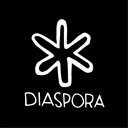Uncovering the Best Social Home Alternatives for Your Social Networking Needs
Social Home, described as a federated personal profile with robust social networking functionality, allows users to create rich content, pin it to their profiles, and federate it to contacts across the federated social web using the Diaspora protocol (with ActivityPub support in progress). While a powerful tool for those seeking a decentralized social experience, users may look for a Social Home alternative for various reasons, including different feature sets, community focus, or platform compatibility.
Top Social Home Alternatives
Whether you're seeking a more mainstream platform, a different federated option, or something with a unique twist, these alternatives offer diverse approaches to social networking that might better suit your preferences.

Twitter is a widely popular online social networking service known for its short, 280-character messages called "tweets." It's a strong Social Home alternative for those looking for a real-time, public-facing platform. Available on Free, Windows, Web, Android, iPhone, and more, Twitter features threaded conversations, hashtags, and private messaging, offering a more immediate and broad reach than Social Home's federated model.

Mastodon
Mastodon is a decentralized microblogging engine, making it an excellent open-source Social Home alternative. Like Social Home, it embraces federation and the Fediverse, offering a privacy-friendly environment without a single company controlling your data. Available on Free, Open Source, Web, and Self-Hosted platforms, Mastodon supports ActivityPub, content warnings, and offers community-based moderation, aligning with the decentralized spirit of Social Home but with a microblogging focus.

Diaspora
Diaspora is a federated social networking service with a strong emphasis on privacy, designed as a privacy-aware alternative. As Social Home utilizes the Diaspora protocol for federation, Diaspora itself is a natural open-source Social Home alternative for users prioritizing decentralized and privacy-focused communication. Available on Free, Open Source, Linux, Web, BSD, Self-Hosted, and Ruby, it features encrypted connections, MarkDown support, and deep integration with the Fediverse.

Facebook is a widely used online social media and network service connecting billions of people globally. For those looking for a broader, more mainstream Social Home alternative with extensive features, Facebook is a primary choice. Available for Free on Windows, Web, Android, iPhone, and more, it offers events, integrated chat, photo sharing, and robust community features, although it operates on a centralized model unlike Social Home.

Tumblr
Tumblr is a microblogging and social networking website where users can post multimedia and other content to a short-form blog. As a Social Home alternative, Tumblr excels for users who prioritize creative expression, blogging, and image sharing. Available for Free on Web, Android, iPhone, and tablets, it offers blog templates, search by tags, and a social feed, making it ideal for visual content creators and niche communities.

Minds
Minds is a free and open-source platform that functions as a global social network, emphasizing free speech and user rewards. It's a compelling Social Home alternative for those concerned with decentralization, privacy, and anti-censorship. Available as Freemium on Web, Android, and iPhone, Minds offers encrypted chat, blogging, podcast hosting, and a unique point system for content creators, aligning with the principles of freedom and privacy.

Gab
Gab is a social network that champions free speech, individual liberty, and the free flow of information online. This makes it an interesting open-source Social Home alternative for users who prioritize uncensored communication. Available as Freemium on Web, Android, and Self-Hosted platforms, Gab is decentralized and offers features like live topics, community-based moderation, and privacy-focused settings, catering to a specific audience looking for unrestricted dialogue.

GNU social
GNU social is a continuation of the StatusNet project, offering social communication software for both public and private use. As an open-source and self-hosted platform, it is a direct philosophical Social Home alternative for those committed to decentralized and ad-free social networking. Available for Free and Open Source, GNU social supports free speech and operates on a distributed model, providing control over one's social presence.

VK
VK (VKontakte) is a popular social network that aims to unite people globally and facilitate comfortable, prompt communication. For a comprehensive Social Home alternative with broad multimedia capabilities, VK is a strong contender. Available for Free on Web, Android, iPhone, and more, VK features a music player, photo sharing, video hosting, and a social feed, making it a versatile platform for diverse communication and content consumption.

Friendica
Friendica is a distributed social network with a strong focus on decentralization, privacy, and interoperability. It serves as an excellent open-source Social Home alternative, particularly for those interested in bridging different social networks. Available for Free, Open Source on Linux, BSD, Self-Hosted, and PHP, Friendica is federated, supports Diaspora and Twitter integration, offers group messaging, and prioritizes privacy, providing a highly customizable and interconnected social experience.
Choosing the right Social Home alternative depends on your specific needs, whether you prioritize decentralization, a broader user base, specific content types, or enhanced privacy features. Explore these options to find the platform that best aligns with your social networking preferences and allows you to connect effectively.